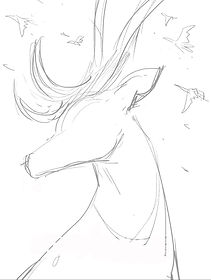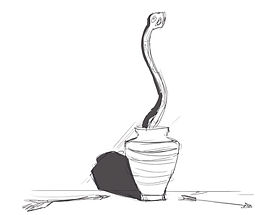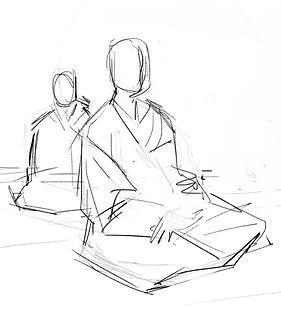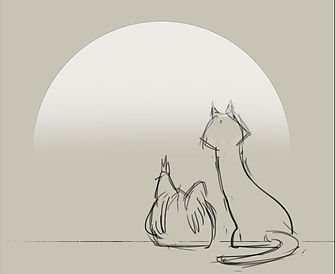
The Very Quiet Studio of Asia
Sound Sañña : Asia stories
Stories Synopsis on Story kasina CD
Asanga
Asanga was first heard and transcribed from a Chinese Dhammatalk but here, it is retold by Phakchok Rinpoche in his own words as it is a well known legend in Tibet Buddhist history. Asanga aspired to meet Maitreya Bodhisattva during his lifetime and so retreated into a cave to meditate. After 3 years, he was unsuccessful and left the cave. Each time he was discouraged, he did not give up, but returned to meditation and grew in compassion until one day...
Do cats listen?
Do Cats Listen? is a story taken from Dhamma book by Phra Rājsuddhiñāṇamongkol "The Law of Kamma”. A woman was irritated by a cat who came around the temple all too often, for mischief. Everyday she scolded the cat who continued, unperturbed, even aggravating further by bringing dogs as well. This is a contemporary, light-hearted Thai temple story in understanding our furry friends who react to abuse and respond to kindness.

Banyan
Banyan is a tale from Jataka Tales rewritten by World War II heroin Noor Inayat Khan. Banyan deer and Branch deer rule over 500 deer each. After being chased into the fields of a king’s castle, they have to send one deer each day to meet his death. When a mother doe from Branch’s herd pleads to postpone her trip to the execution, Banyan takes her place by offering his own life. The king is surprised as Banyan has already been pardoned from the sacrifice.


Sāmāvati
Sāmāvati is part of a true story adapted from the Dhammapada Appamādavagga verse 22. Sāmāvati was the 3rd wife of King Udena, who had a special servant Khujjuttara who could repeat all that she had heard of the Buddha’s teachings. Māgandiyā, the 2nd wife of King Udena plotted against Sāmāvati. Summoned to death by the angry king, Sāmāvati and her 500 maids sent metta everywhere and to the king, when arrows were shot at them. The arrows turned and headed for the king instead.
Mahatissa
Mahatissa is taken from a dhamma talk. In ancient times, a man and his wife practise Dana (generosity) to the extent of selling their daughter as a maid, to support almsgiving to a monastery. The man tries to redeem his daughter by working in a city and earning back 12 dollars. On his way, he meets a bhikkhu, and a man with a packet of rice. He immediately exchanges the 12 dollars for the packet of rice to offer to the bhikkhu. The bhikkhu reciprocates by attaining arahant so the donor receives the highest merits for his dana.

Hen Feud
Hen Feud is adapted from Dhammapada Pakinnakavagga verse 291. Long, long ago, the lady owner of a hen ate its eggs in front of the hen. Later on the hen vowed revenge by eating the owner’s offsprings. The hen died and was reborn as a house cat while the lady owner was reborn as a hen in the same house; the cat ate her eggs. This hen then vowed revenge that she would eat the cat’s little ones in future. After chasing and killing each other and their offspring for 500 lifetimes, they finally met the Buddha who enlightened them and resolved the conflict.

VOLUNTEER RESEARCHERS ON LOST ASIAN STORIES